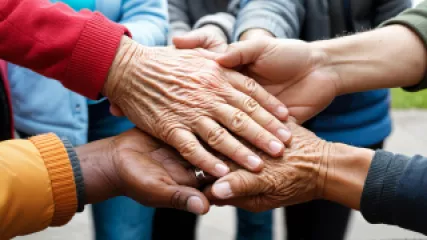Maximizing Volunteering Benefits for Reducing Loneliness
Maximizing Volunteering Benefits for Reducing Loneliness
Loneliness is a prevalent issue in today's society, affecting people of all ages and backgrounds. The feeling of isolation can have detrimental effects on both our mental and physical health. However, one powerful solution that has been proven to combat loneliness is volunteering. Engaging in volunteer work not only allows us to contribute to a greater cause but also provides numerous benefits for reducing loneliness. In this tutorial, we will explore step by step how to maximize these volunteering benefits and create a more connected and fulfilling life.
The Link Between Volunteering and Loneliness
Before diving into the steps of maximizing volunteering benefits for reducing loneliness, let's first understand the connection between the two. Loneliness often stems from a lack of meaningful social connections and a sense of purpose. By engaging in volunteer work, individuals can address these underlying causes and experience a deeper sense of belonging and fulfillment.
Volunteering provides opportunities to connect with like-minded individuals who share similar values and passions. It allows us to build relationships within our communities and develop a support system that can help combat feelings of loneliness. Additionally, volunteering offers a sense of purpose and meaning, as it allows us to make a positive impact on the lives of others.
Step 1: Identify Your Interests and Passions
The first step in maximizing volunteering benefits for reducing loneliness is to identify your interests and passions. Start by reflecting on what causes or issues resonate with you on a personal level. Consider the skills and talents you possess and how they can be utilized to make a difference.
Make a list of organizations or projects that align with your interests. This could include local community centers, animal shelters, environmental initiatives, or organizations focused on education or healthcare. Research these organizations to gain a better understanding of their missions and activities.
Step 2: Find Volunteer Opportunities
Once you have identified your interests, it's time to find volunteer opportunities that align with them. There are various ways to discover volunteer opportunities:
- Online platforms: Visit websites such as VolunteerMatch or Idealist, which connect volunteers with organizations based on their interests and location.
- Local community centers: Reach out to community centers, religious institutions, or nonprofit organizations in your area to inquire about volunteer opportunities.
- Word of mouth: Ask friends, family members, or colleagues if they know of any volunteer opportunities or organizations in need of assistance.
Take your time to explore different options and choose volunteer opportunities that resonate with you the most. Remember, the more passionate you are about the cause, the more fulfilling the experience will be.
Step 3: Commit to Regular Volunteering
Consistency is key when it comes to maximizing the benefits of volunteering. Loneliness can often be alleviated through regular social interactions and a sense of belonging. Commit to a consistent volunteering schedule that works for you, whether it's a few hours per week or a monthly commitment.
By dedicating regular time to volunteering, you will not only build stronger connections within the organization but also develop deeper relationships with fellow volunteers and those you are serving. Consistency allows for trust to be established, fostering a greater sense of belonging and reducing feelings of loneliness.
Step 4: Engage in Meaningful Interactions
While volunteering, make an effort to engage in meaningful interactions with both fellow volunteers and those you are serving. Actively listen, show empathy, and be genuinely interested in the stories and experiences of others. By fostering authentic connections, you can create a sense of community and support within the volunteering environment.
Additionally, consider joining or initiating group activities or events that promote socialization. This could include team-building exercises, workshops, or community gatherings. Creating opportunities for social interaction will enhance the overall experience and further reduce feelings of loneliness.
Step 5: Reflect and Evaluate
Regularly reflect on your volunteering experience and evaluate its impact on your overall well-being. Take note of any positive changes in your mood, sense of purpose, and social connections. Acknowledge the ways in which volunteering has helped reduce loneliness in your life.
Consider journaling about your experiences, documenting moments of connection and personal growth. This reflection process will not only help you appreciate the benefits of volunteering but also serve as a reminder of the positive impact you are making in the lives of others.
Step 6: Share Your Journey
Finally, share your volunteering journey with others. By sharing your experiences, you can inspire and encourage those around you to also explore the benefits of volunteering for reducing loneliness. Talk to friends, family, and colleagues about your volunteer work and the positive impact it has had on your life.
You can also consider leveraging social media platforms to raise awareness about the causes you are passionate about. Share photos, stories, and insights from your volunteering experiences to inspire others to get involved.
Conclusion
Volunteering offers numerous benefits for reducing loneliness and creating a more connected and fulfilling life. By following these steps, you can maximize the impact of your volunteer work and experience the positive effects it has on your mental and physical well-being. Remember, volunteering not only benefits those you serve but also provides a sense of purpose, belonging, and social connection for yourself.
Inspiring Quote: "The best way to find yourself is to lose yourself in the service of others." - Mahatma Gandhi
Source: BrainyQuote






